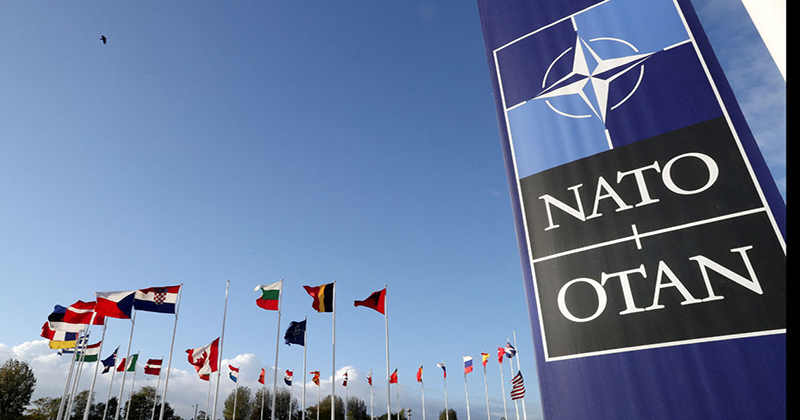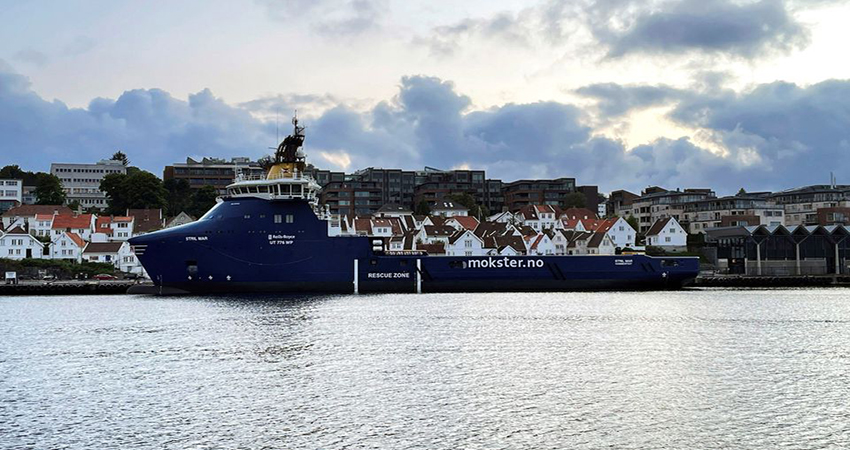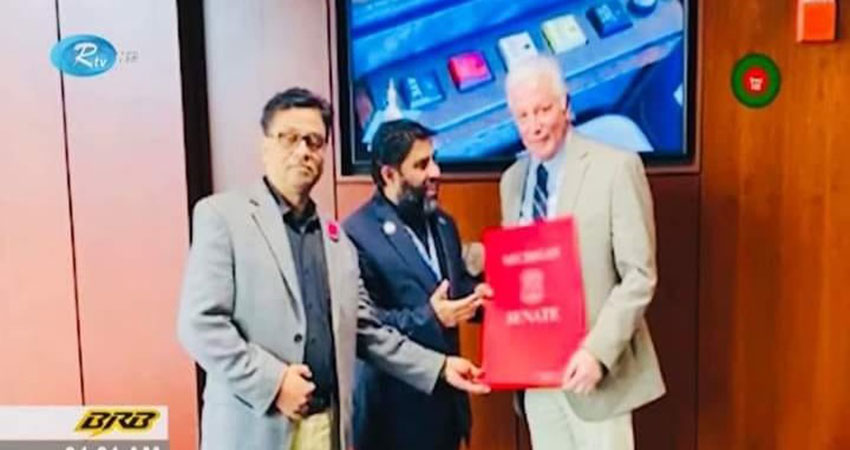But that calculation does not work anymore. With Helsinki and Stockholm, having held out against joining NATO for decades, now unabashedly keen about joining the alliance, the arithmetic gets somewhat confusing. Obviously, the Russians cannot be happy about this development and have made their sentiments clear. As for Finland and Sweden, it is hard to understand why they have acted the way they have. Diplomatic analysts will inform you that Moscow had no threats hurled against them, that Putin had — and has — no intention of sending his soldiers into Finland and Sweden. So why this sudden desire on their part for NATO membership? One obvious answer arises here: the West finds in the Ukraine situation an opportunity to contain Russia, in the way it went out on a limb to contain what it called Red China and indeed communism in the 1950s and 1960s. Born-again Cold Warriors, Joe Biden a reincarnation of Harry Truman?
Let there be no mistaking the damage to international relations that is being done in the aftermath of the military conflict in Ukraine. President Putin had no business sending his soldiers into Ukraine and having them get bogged down there. Ukrainians and Russians have perished in the thousands, if not more. Five million Ukrainians have made it out of their battle-scarred country to safer climes. And if Russia has damaged the fabric of global order, the West, led by the United States, has gleefully emulated him in its time-honoured fashion. And what might that be? Observe the relentless supply of weaponry to the Ukrainians, in the expectation that Kyiv can beat Moscow black and blue and have the Russian invaders scamper back home, licking their wounds all the way.
And do not ignore that other truth, ugly and dangerous in form and substance. The armaments industry in Washington, London, Paris and Berlin is having a whale of a time producing all those armoured vehicles, tanks, aircraft, missiles and what not and shipping them off to Ukraine. How is Ukraine to pay for all that package? Simple: all the money that has been and is being made available to Volodymyr Zelenskyy’s embattled government will, under the laws governing modern conflict, pass into the coffers of the men behind the making of all that war materiel. The economy in NATO nations will boom.
It is rather curious — isn’t it? — that in its obsession with saving Ukraine from coming into the clutches of Russia the West does not have the time or the inclination or both to dwell on the need for the Palestinians to be freed of the fifty-five-year stranglehold Israel has had on them. Palestinian freedom is of small consequence; and ensuring decent meals for Afghan children, condemned to penury as they are under a medieval regime that knows no law and therefore no morality, is not a priority. Life, you might say, is unfair. The gods, you will likely remind us, are unjust. And the men who see evil around them and yet look away from it? You are reminded of Hobbes’ dictum of men being nasty, brutish, short.
And so we will let it be.
But what now worries large sections of the global population is this growth of new ambition within the councils of NATO. Since the collapse of communism in the early 1990s, the organization has expanded beyond its imagination. It now has the Finns and the Swedes coming in. The danger is unmistakable. Those who run NATO today as also the men who wield power in western capitals are unthinkingly taking the world back to the 1950s, indeed to the beginnings of the old Cold War in the late 1940s. Mark this: this new Cold War, precipitated by Putin and built upon by Biden and his friends, has already upended all the good that was done by détente through the 1970s and later. Willy Brandt’s Ostpolitik, the SALT agreements, the purposeful summitry in Moscow, Beijing and Washington have deliberately been pushed under the rug.
Think about NATO again, and seriously too. It took shape in 1949 in what was one of the earliest of geopolitical moves in the Cold War. Its fundamental goal was to resist communism and prevent it from expanding into the democracies of Europe. It was a means of keeping the Warsaw Pact, led by the Soviet Union, at bay. Well, communism collapsed in the early 1990s, thanks to the non-visionary that was Mikhail Gorbachev. The Warsaw Pact is now history and all its erstwhile communist member-states are now home to democracy. Why then is NATO still there? If the Warsaw Pact can go, and clearly is gone; if such anti-communist regional bodies as CENTO and SEATO do not exist anymore, NATO has really no reason to be in these times (unless you recall how cheerfully it went into the sordid business of inciting Libyans against Muammar Gaddafi and getting him lynched and how it might wish to commit such a deed again).
And yet NATO is on a mission to collect new members, which is pretty stupefying. Meanwhile, with Russia not winning the war and Ukraine not losing it, stalemate — and economic consequences — stare the world in the face. It is a pity that men of the calibre of Metternich, Talleyrand and Castlereagh do not live in our times. For all our questions about his political morality, Henry Kissinger has not had someone of his stature around to engage in shuttle diplomacy … to lower the temperature, to have enemies talking across the table.
Syed Badrul Ahsanis a politics and history analyst



















